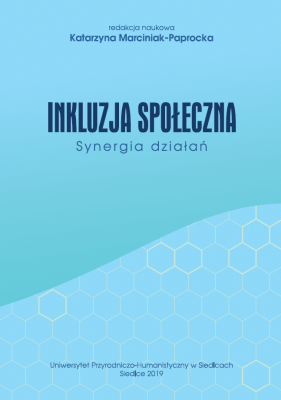Incomplete culture in the face of precariat identity. Remarks on social exclusion
Synopsis
The article is devoted to the issue of the impact of culture on the aspects of building the identity of modern man. Culture is the primary word for the translation of both worldviews and ideological differences, as well as an inseparable component of the dictionary of economics, business, advertising or politics. It is difficult to understand the world without applying and diversifying the concept of culture. Culture is also a key word in the language of education. The relationship to its manifestations is an inseparable element of building educational systems. The aim of the article is to show how the changes taking place in the social space influence the creation of new areas of social exclusion. These areas no longer concern only such issues as poverty or educational deficiencies but the identity prob-lems of today's man. The article discusses the precariat class in detail and on its basis the perspectives of creating senses in the contemporary world were shown, paying special attention to threats resulting from functioning in the world of varia-bility and imperfect culture. This precariat is a new type of class mentality adjacent to the unemployed and socially excluded. He expresses the risk culture in times dominated by economics, labor relations and the tyranny of popular culture. With reference to the newly emerging social class, the most important concepts related to contemporary culture – globalism, the problem of information, aestheticization of reality, consumerism and voyeurism and sotreism are presented. Today's culture is a culture which, as a consequence of playing symbols, leads to alienation and alienation. It's a culture of exile. Man was brought to the role of consumer, a mode that ensures the continuity of the mechanized world system. The creation of identity requires, above all, the presence of another human being. The policy of establishing cultural symbols alone can not replace a direct interpersonal relationship. Return to the community of life and destiny or to the community of life and fate seems to be a historical necessity. The analytical approach to the problem of identity building in times of imperfect culture is a prerequisite for understanding identity transformations that we are observers in social and pedagogical practice.
Downloads
Published
License

This work is licensed under a Creative Commons Attribution-NonCommercial 4.0 International License.





